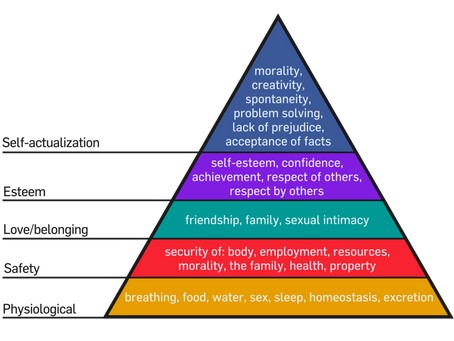Where does it all lead?
These things we do—business, fitness, family, work—where are we headed?
I think the purpose of our existence is to find happiness. Call it self-actualization or nirvana or heaven, but we’re all shooting for a better mental state than we’re currently in.
In this series, I’m going to tell you how to get there. And here’s the great news: It’s actually easier for an entrepreneur to become happy than for almost anyone else.
Why Do I Care About This?
Why, for once, am I not writing about retention rates and operational excellence in your business?
Because my mission is to make 1 million entrepreneurs wealthy.
And as I define it, wealth is the freedom of finances and time. And how that time is spent is critical to wealth. My mission is not to build 1 million misers.
I work with gym owners who feel happy when they’re coaching. So they build gyms that allow them to coach more often.
I also work with gym owners to would rather just take a month off. So they build gyms that run themselves and hire coaches.
I have a gym that doesn’t require my presence at all. It pays me. That creates time freedom for me to write you these letters. That makes me happy.
Here’s the thing: If gym owners are happy, they’ll stay in the gym business. And for every year they stay around, they save another 20 souls—and they help the larger community, too.
Happiness is backward compatible. Happy people attract happy people. But even more important, you will make people happy if you’re happy yourself.
Fitness is a prerequisite for happiness. But the trail doesn’t end there.
The Prerequisites for Happiness
Maslow’s hierarchy is a useful model for the pursuit of happiness. Abraham Maslow wrote “Toward a Psychology of Being” to describe his model. Here it is in graphical format:

Maslow believed that it’s really hard to be spontaneous when you’re starving to death.
Likewise, that it’s hard to have high self-esteem when you’re homeless.
Our top lesson from Maslow isn’t that happiness is a checklist, however. In modern society, we take most of the bottom two layers for granted (for the first time in history). Our real lesson is that Maslow is backward compatible: if you have Esteem, you’ll probably find Love/Belonging. If you have Love/Belonging, you will probably find Safety. And if you have Safety, you can probably solve the problem of Physiological lack.
Modern society actually creates a new type of physiological problem: excess. But we, the coaches of the world, can help people by leading from the top of the pyramid down. We can help boost self-esteem. We can help foster friendships (and even family and sexual intimacy). Those things can create Safety. And when people have the safety of resources and body, they can improve their sex lives, their sleep, their homeostasis and even their excretion.
All we have to do is lead them to happiness.
But to do that, we have to be happy ourselves.
More often than ever before, I see entrepreneurs “coming out” about depression and anxiety. Chefs, dentists, liquor store owners—they all talk about it now. But no one talks about how to stop being depressed, so I will.
Happiness is far more than the absence of depression. Happiness doesn’t mean unending bliss—I’ll tell you exactly what happiness is in the next post, and I’ll tell you how to achieve it. But first: You have to stop being unhappy.
How to Stop Being Unhappy
I said earlier that Maslow’s hierarchy is backward compatible. That means you can actually teach yourself to be happy by doing the things happy people do.
B.F. Skinner famously published studies showing that activating the smile muscles actually makes you happier. Go ahead and try it: Put a pencil between your teeth for a minute (not sticking straight out; bite it side to side). You’ll feel happier.
Now, visualize a very happy person in your mind. The person is standing up with perfect posture, maybe whistling a tune while walking down a sunny street. Well, all those things really are what happy people do. But no one suddenly “gets happy” and decides to take a stroll. Instead, the walking outside while whistling and standing up straight—those are the things that make you happy. Happiness is backward compatible.
Dan Pink’s book “Drive” set out another prerequisite of happiness: self-monitoring. Paraphrasing Pink, most people don’t pay attention to the thoughts in their heads. They actually program themselves to be unhappy all day.
Take Pink’s exercise: Start counting your happy, positive thoughts and your depressing, negative ones. Don’t just count the times you abuse or praise yourself: Count the number of times you run someone else down or criticize him or her. Those thoughts are making you stressed and unhappy. Happiness is backward compatible.
Finally, you must stop comparing yourself to others. If you figure out how to do it, tell me.
How to Climb the Pyramid as an Entrepreneur
1. Satisfy your physiological needs. Take care of yourself first. I know I shouldn’t have to tell you this, but prioritize your sleep, nutrition and workouts. Jump into classes at your gym or just go for a walk. It’s OK to lose your peak form, but don’t stop moving. Ride your bike or go for a walk. Get off the ‘Gram and go outside.
2. Achieve security of employment and resources. Pay yourself first. Secure your own mask before helping others.
3. Prioritize the most important people. Your business exists to serve you. Don’t allow it to run your life for long.
4. Achieve self-esteem. Practice Bright Spots on Fridays. Surround yourself with positive entrepreneurs instead of sad ones.
5. Achieve balance.
How do you do this stuff? You build a business that supports you instead of requiring you to support it.


